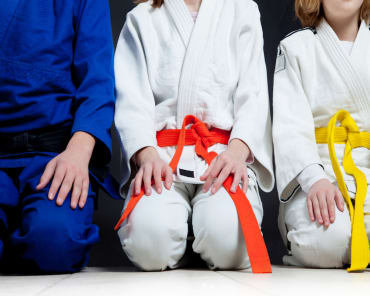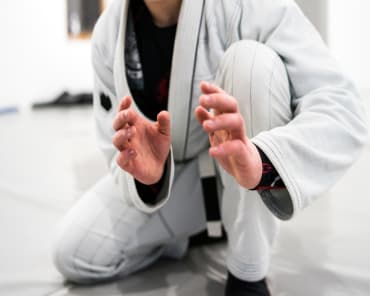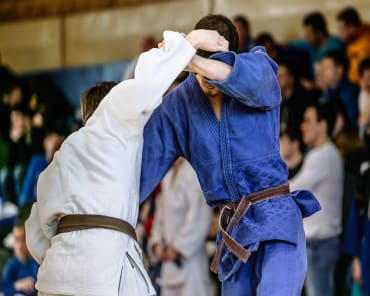
Wrestlers have long been celebrated for their physical prowess, mental toughness, and technical skill. When these athletes transition to Brazilian Jiu-Jitsu (BJJ), they often find that their wrestling background provides a significant advantage. Here’s why wrestlers are inherently good at Jiu-Jitsu and why they should consider cross-training in this martial art.
Strength and Conditioning
Wrestlers come to BJJ with a high level of physical conditioning. Wrestling training is notoriously demanding, emphasizing strength, endurance, and explosive power. This physical foundation allows wrestlers to adapt quickly to the rigors of Jiu-Jitsu. Their stamina helps them maintain a high pace during rolls (sparring sessions), and their strength aids in both offensive and defensive maneuvers.
Takedown Skills
One of the most significant advantages wrestlers have in Jiu-Jitsu is their takedown proficiency. Wrestlers excel in shooting for takedowns and controlling opponents on the ground. These skills translate directly to BJJ, where the ability to dictate whether a fight goes to the ground—and in what position—is crucial. Wrestlers often dominate the stand-up phase of a match, securing advantageous positions from the outset.
Top Pressure and Control
Wrestlers are experts in maintaining top control and applying pressure, skills that are invaluable in Jiu-Jitsu. They are adept at using their body weight to pin opponents, making it difficult for them to escape or counterattack. This ability to control and pressure from the top is a significant asset in BJJ, where positional dominance often leads to submission opportunities.
Mental Toughness and Work Ethic
The mental toughness developed through wrestling is another reason wrestlers excel in Jiu-Jitsu. Wrestling is a physically and mentally demanding sport that instills a strong work ethic and a never-give-up attitude. These traits are critical in Jiu-Jitsu, where persistence and resilience often determine success on the mat.
Why Wrestlers Should Cross-Train in Jiu-Jitsu
While wrestlers have many advantages, cross-training in Jiu-Jitsu offers numerous benefits that can enhance their grappling game. Jiu-Jitsu introduces wrestlers to a wider array of submission techniques and a more comprehensive ground game. By learning how to defend against and apply submissions, wrestlers become more well-rounded grapplers.
Cross-training also helps wrestlers become more comfortable on their backs. Wrestling typically emphasizes avoiding this position, but Jiu-Jitsu teaches effective defense and offensive tactics from the bottom. This expanded skill set makes wrestlers more versatile and better prepared for various grappling scenarios.
Furthermore, BJJ’s emphasis on technique and leverage complements the physicality of wrestling. It encourages wrestlers to refine their technical skills and understand the intricacies of body mechanics, making them more efficient and effective grapplers.
Conclusion
Wrestlers possess a unique set of skills and attributes that make them naturally adept at Brazilian Jiu-Jitsu. Their strength, conditioning, takedown ability, top control, and mental toughness give them a solid foundation for success. By cross-training in Jiu-Jitsu, wrestlers can enhance their submission skills, improve their comfort in all positions, and become more well-rounded grapplers. This combination of wrestling and Jiu-Jitsu creates a formidable martial artist capable of excelling in various combat sports and self-defense situations.






